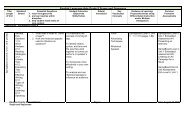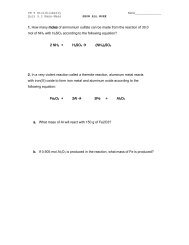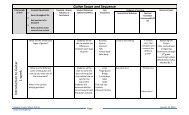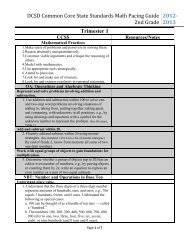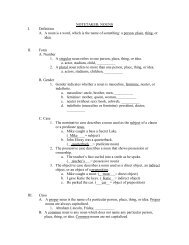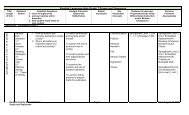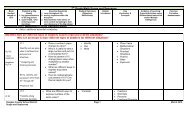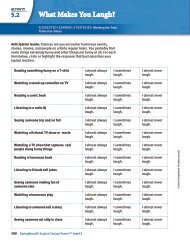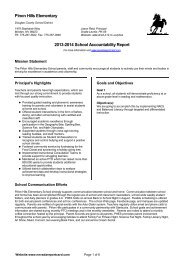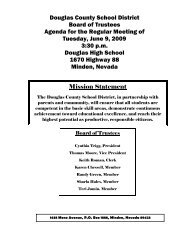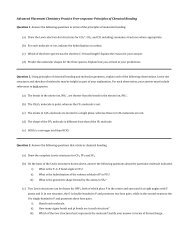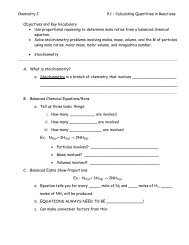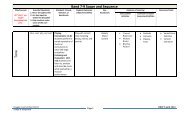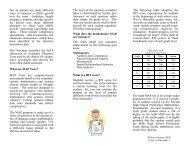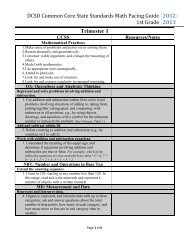SCIENCE COMPETENCY CURRICULUM GUIDE
SCIENCE COMPETENCY CURRICULUM GUIDE
SCIENCE COMPETENCY CURRICULUM GUIDE
You also want an ePaper? Increase the reach of your titles
YUMPU automatically turns print PDFs into web optimized ePapers that Google loves.
<strong>SCIENCE</strong> <strong>COMPETENCY</strong> <strong>CURRICULUM</strong> <strong>GUIDE</strong><br />
Exit Competency D: Students will demonstrate competency in understanding basic principles and theories of earth science whether from geology,<br />
astronomy, meteorology, oceanography, including: 2. Distribution of ecosystems on the earth s surface, including the local environment<br />
Objectives: Assessment: Possible Resources: Possible Strategies:<br />
By the end of 6 th grade, students will:<br />
1. Know that an ecosystem is an<br />
interdependency of living and<br />
nonliving things by describing a<br />
complete ecosystem, consisting<br />
of at least the elemen ts of:<br />
-sun<br />
-soil<br />
-water<br />
-air<br />
-plants<br />
-animals<br />
through a verbal, written, visual<br />
or physical representation.<br />
(See also Competency B4.)<br />
Time:<br />
3-4 1 month per ecosystem<br />
4 th 1 hour per lesson in Isopod<br />
kit (12 lessons)<br />
2. Understand that water moves<br />
through three stages in the water<br />
cycle:<br />
-evaporates from the surface<br />
of the earth, rises, and<br />
cools<br />
-condenses as rain or snow<br />
-falls to the surface as<br />
precipitation<br />
by drawing or explaining the<br />
stages of a water cycle, using the<br />
terminology: evaporation,<br />
condensation and precipitation.<br />
Time: 2 hours/ quick review<br />
May 29, 2001<br />
4<br />
1. Provided Instructional Resources:<br />
Isopods, DCSD science kit, 4 th<br />
grade<br />
Supplementary Resources:<br />
Interact Company: Paul s Pond,<br />
Debbie s Desert<br />
Naturescope (Rainforest, Trees,<br />
trees, trees, ocean (JVES)<br />
Ranger Rick magazine<br />
Student worksheets<br />
2. Provided Instructional Resources<br />
Voyage of the Mimi I, DCSD, 6 th<br />
grade<br />
Supplementary Resources:<br />
Handout - Stages of H2O Cycle<br />
Information on Nevada Water<br />
Calendars<br />
The Magic Bus, Water Cycle<br />
Video - Bill Nye the Science<br />
Guy<br />
Weather brochures from DRI in<br />
Reno<br />
1. Instructional strategies could<br />
include:<br />
Students could design a jigsaw<br />
representation of an ecosystem,<br />
showing the dependence of each<br />
piece on the others.<br />
2. Instructional strategies could<br />
include:<br />
Students could be given an<br />
ecosystem or an element of the<br />
ecosystem.



